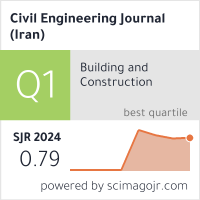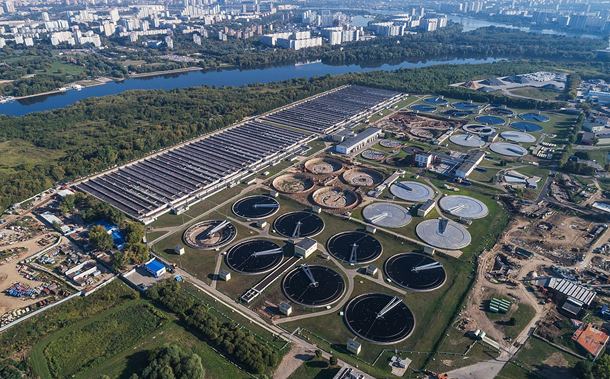Optimization Framework for ASIAN and National Road Networks in Lao PDR Using the Stochastic Markov Model
Downloads
Doi:10.28991/CEJ-2025-011-05-023
Full Text:PDF
Downloads
[2] Ishida, M. (2019). Inland ASEAN road connectivity: Challenges and prospects. Cross-Border Transport Facilitation in Inland ASEAN and the ASEAN Economic Community; ERIA and IDE-JETR, Jakarta, Indonesia.
[3] Kerali, H. R. (2001, May). The role of HDM-4 in road management. Proceedings, First Road Transportation Technology Transfer Conference in Africa, Ministry of Works, Tanzania, 23-25 May, Arusha, Tanzania.
[4] Li, N., Haas, R., & Xie, W. C. (1997). Investigation of relationship between deterministic and probabilistic prediction models in pavement management. Transportation Research Record, 1592, 70–79. doi:10.3141/1592-09.
[5] MPWT. (2022). 3-Year Rolling Road Maintenance Plan 2022–2024. Ministry of Public Works and Transport, Vientiane, Lao PDR.
[6] Bennett, C. R. (2008). Success Factors for Road Management Systems. Infrastructure Reporting and Asset Management, 81–85, American Society of Civil Engineers, Reston, United States. doi:10.1061/9780784409589.ch11.
[7] Thube, D., & Thube, A. (2013). Software development for calibration of highway development and management tool (HDM-4) for local conditions. International Journal of Structural and Civil Engineering Research, 2(1), 95-104.
[8] Robinson, R., Danielson, U., & Snaith, M. (1998). Road maintenance management-concepts and systems. Red Globe Press, London, United Kingdom. doi:10.1007/978-1-349-14676-5.
[9] Obunguta, F., Kaito, K., Sasai, K., Kobayashi, K., Matsushima, K., & Bakamwesiga, H. (2024). Generating Near-Optimal Road Condition–Capacity Improvement Decisions Using Monte Carlo Simulations. Journal of Infrastructure Systems, 30(4). doi:10.1061/jitse4.iseng-2429.
[10] Nakazato, Y., Mizutani, D., & Fukuyama, S. (2023). Optimal Repair Policies for Infrastructure Systems with Life Cycle Cost Minimization and Annual Cost Leveling. Journal of Infrastructure Systems, 29(3), 4023021. doi:10.1061/jitse4.iseng-2169.
[11] Nakazato, Y., & Mizutani, D. (2024). 365-Day Sectional Work Zone Schedule Optimization for Road Networks Considering Economies of Scale and User Cost. Computer-Aided Civil and Infrastructure Engineering, 39(15), 2270–2298. doi:10.1111/mice.13273.
[12] Zhang, L., Gu, W., Byon, Y. J., & Lee, J. (2023). Condition-based pavement management systems accounting for model uncertainty and facility heterogeneity with belief updates. Transportation Research Part C: Emerging Technologies, 148, 104054. doi:10.1016/j.trc.2023.104054.
[13] Obunguta, F., Matsushima, K., & Bakamwesiga, H. (2022). Social Cost Optimization Model and Empirical Evaluation of Intervention Effects on Ugandan Road Pavements. Journal of Infrastructure Systems, 28(4), 5022005. doi:10.1061/(asce)is.1943-555x.0000707.
[14] Harvey, M. O. (2024). Estimating from an optimisation model the cost of restricting road maintenance funding for a large network. International Journal of Pavement Engineering, 25(1), 2400540. doi:10.1080/10298436.2024.2400540.
[15] Zeng, Q., Xiao, F., Sun, X., Yang, S., & Cui, Q. (2024). An Improved Two-Stage Bottom-Up Optimization Approach for Pavement Maintenance and Rehabilitation Decision Making. Journal of Transportation Engineering, Part B: Pavements, 150(3), 4024038. doi:10.1061/jpeodx.pveng-1537.
[16] Puterman, M. L. (1994). Markov Decision Processes. Wiley Series in Probability and Statistics, John Wiley & Sons, Hoboken, United States. doi:10.1002/9780470316887.
[17] Feinberg, E. A., & Shwartz, A. (2012). Handbook of Markov decision processes: methods and applications. Springer Science & Business Media, Berlin, Germany.
[18] Yates, R. D., & Goodman, D. J. (1999). Probability and stochastic processes: A friendly introduction for electrical and computer engineers. Computers & Mathematics with Applications, 37(3), 136. doi:10.1016/s0898-1221(99)90435-2.
[19] Tsuda, Y., Kaito, K., Aoki, K., & Kobayashi, K. (2006). Estimating Markovian transition probabilities for bridge deterioration forecasting. Structural Engineering/Earthquake Engineering, 23(2), 241 –256. doi:10.2208/jsceseee.23.241s.
[20] Han, D., Kaito, K., Kobayashi, K., & Aoki, K. (2016). Performance evaluation of advanced pavement materials by Bayesian Markov Mixture Hazard model. KSCE Journal of Civil Engineering, 20(2), 729–737. doi:10.1007/s12205-015-0375-3.
[21] Kobayashi, K., Kaito, K., & Lethanh, N. (2012). A statistical deterioration forecasting method using hidden Markov model for infrastructure management. Transportation Research Part B: Methodological, 46(4), 544–561. doi:10.1016/j.trb.2011.11.008.
[22] Kobayashi, K., Do, M., & Han, D. (2010). Estimation of Markovian transition probabilities for pavement deterioration forecasting. KSCE Journal of Civil Engineering, 14(3), 343–351. doi:10.1007/s12205-010-0343-x.
[23] Lancaster, T. (1990). The Econometric Analysis of Transition Data. Cambridge University Press, Cambridge, United Kingdom. doi:10.1017/ccol0521265967.
[24] Kobayashi, K., Eguchi, M., Oi, A., Aoki, K., & Kaito, K. (2011). the Optimal Implementation Policy of Pavement Inspection With Deterioration Uncertainty. Journal of Japan Society of Civil Engineers, Ser. E1 (Pavement Engineering), 67(2), 75–90. doi:10.2208/jscejpe.67.75.
[25] Obunguta, F., & Matsushima, K. (2022). Optimal pavement management strategy development with a stochastic model and its practical application to Ugandan national roads. International Journal of Pavement Engineering, 23(7), 2405–2419. doi:10.1080/10298436.2020.1857759.
[26] Li, Y., & Madanat, S. (2002). A steady-state solution for the optimal pavement resurfacing problem. Transportation Research Part A: Policy and Practice, 36(6), 525–535. doi:10.1016/S0965-8564(01)00020-9.
[27] Sutton, R. S., & Barto, A. G. (1998). Reinforcement learning: An introduction. MIT press, Cambridge, United States.
[28] Lv, J., Wang, X., Huang, M., Cheng, H., & Li, F. (2016). Solving 0-1 knapsack problem by greedy degree and expectation efficiency. Applied Soft Computing Journal, 41, 94–103. doi:10.1016/j.asoc.2015.11.045.
[29] Rinnooy Kan, A. H. G., Stougie, L., & Vercellis, C. (1993). A class of generalized greedy algorithms for the multi-knapsack problem. Discrete Applied Mathematics, 42(2–3), 279–290. doi:10.1016/0166-218X(93)90051-O.
[30] MPWT. (2009). Road Management System – Traffic Survey Manual. Ministry of Public Works and Transport, Vientiane, Lao PDR.
[31] Gharieb, M., & Nishikawa, T. (2021). Development of Roughness Prediction Models for Laos National Road Network. CivilEng, 2(1), 158–173. doi:10.3390/civileng2010009.
[32] JICA. (2018). The Project for Improvement of Road Management Capability in Lao PDR. Japan International Cooperation Agency (JICA), Tokyo, Japan.
[33] MPWT. (2021). Road Asset Management Plan. Ministry of Public Works and Transport, Vientiane, Lao PDR.
[34] Hastings, W. K. (1970). Monte Carlo sampling methods using Markov chains and their applications. Biometrika, 57(1), 97–109. doi:10.1093/biomet/57.1.97.
[35] Metropolis, N., Rosenbluth, A. W., Rosenbluth, M. N., Teller, A. H., & Teller, E. (1953). Equation of state calculations by fast computing machines. The Journal of Chemical Physics, 21(6), 1087–1092. doi:10.1063/1.1699114.
[36] MPWT. (2016). RMS Analysis Report for National Roads. Ministry of Public Works and Transport, Vientiane, Lao PDR.
- Authors retain all copyrights. It is noticeable that authors will not be forced to sign any copyright transfer agreements.
- This work (including HTML and PDF Files) is licensed under a Creative Commons Attribution 4.0 International License.![]()















